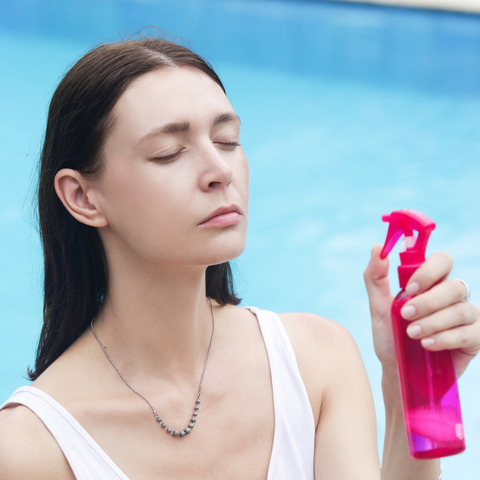Coming into this summer season, especially with the weather being so changeable in Ireland, it can be hard to find the right balance that works for your skin.
The following steps are some proactive methods you can use which may help with easing any breakouts or reactions your skin may have to differing weather patterns or work patterns/diet during the summer.
In this blog post we discuss some habits you can build into your skincare routines so you can make sure that you prevent that pesky acne breakout, flare up of dry skin or worst case scenario, progression to skin cancer.
Pre sun
Our skin is one of our biggest organs, the average adult can carry “up to 8 pounds” of it! so we need to pay it the respect it deserves. We all know at least one person who thinks they have skin made of steel and are immune to sunburn and the damage it can wreak havoc on their skin.
Ultraviolet (UV) rays can cause changes in the composition of the skin under the surface, If there is a spot or a blemish on your body that you are not sure about, it may be wise to book an appointment with a dermatologist, as doing this could help put your mind at ease, as well as catching any possible problems early, which could help you in the long run
Check out our pre sun tips:
- Use sunscreen appropriate for the weather, ideally SPF 30/50.
- Reapply it every couple of hours, as it will have soaked into your skin over time.
- Stay in the shade when you are not in the water or out on the sand.
- Wear long loose fitted clothing and wide-brimmed hats, for ease of mobility and also a higher degree of protection.
- Try to stay away from the most volatile UV rays in the middle of the day (12 noon-3pm).
Post sun
If you are unlucky enough that you do get burnt, a proper skincare routine is essential in order to make sure your skin heals properly, and that you are not left with blisters, dry skin or even scars. Some methods you can take to ease the pain of burnt skin are:
- A cold or lukewarm shower may help to ease the stinging sensation of the skin.
- Applying Aloe Vera gel (store it in the fridge for an hour!), can also help to aid the cooling down of the skin.
- Using moisturizer can help to reduce dry patches and may help with stopping your skin peeling, which can often lead to dry patches of skin on areas of your body worst affected by the sunburn.
- Take pain relief as necessary, and only if entirely necessary.
- Rehydrate your skin by drinking as much fluids as you can to replenish the cells in the skin which have been damaged.
Tips
- Needless to say, moisturizing is a huge part of combatting dry skin, applying a generous layer after you come out of the shower will help to seal the skin and reduce flare ups, but try not to stay in the shower for too long, as this could dry your skin out!
- Stay away from harsh, heavily scented and drying soaps, as these could hurt your skin and this, coupled with sun exposure, could lead to a bad flare up.
- Using a humidifier in your room or house can help to clean the air, as hot and dry air could exacerbate itching and flaking of the affected areas, and it will help with lowering the temperature of the room too if the weather is too hot!
Recommended Products

|
|
Cerave Facial Moisturizing Lotion SPF25
|
 |
|
Aveeno Daily Moisturizing Body Wash
|
 |
|
|
Check out our full skincare range HERE
Find out more about summertime skincare HERE



